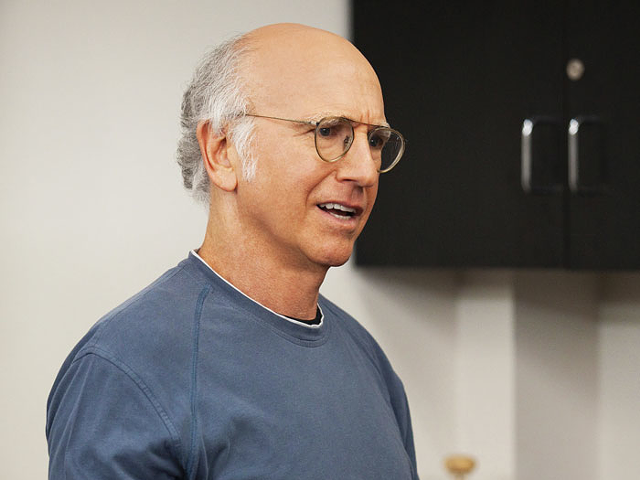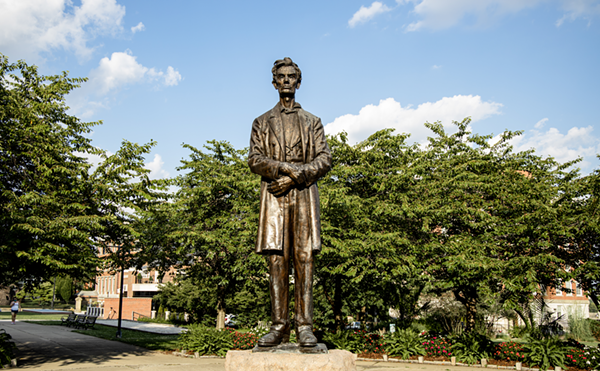About halfway through talented French director Arnaud Desplechin’s intoxicating My Golden Days, his latest exploration into messy relationships of one kind or another, four teenagers gather around a television to watch a live shot of the Berlin Wall coming down, its graffiti-strewn sections being dismantled one section at a time.
Three of them take in the historic proceedings with a kind of giddy fascination — a symbol of division is falling away before their eyes. The fourth, Paul Dedalus (played by newcomer Quentin Dolmaire), has a melancholy look on his face. The others ask why he seems sad. “I am sad,” he says. “I see my childhood ending.”
Childhood and the ways in which the bonds of family can impact us are an increasingly vital aspect of Desplechin’s richly crafted movies. It’s almost as if he is working backward from the traditional trajectory; My Golden Days, with its preoccupation on family and its evocation of burgeoning adulthood, seems like a first effort.
In fact, Desplechin’s debut, 1992’s The Sentinel, was a sideways, conspiratorial thriller in the mode of French New Wave master Jacques Rivette. And Desplechin’s 1996 breakthrough, the playfully titled My Sex Life… Or How I Got into an Argument, was an endlessly romantic three-hour coming-of-age story about a group of sexually adventurous postgraduate Parisians trying to make sense of adulthood. At its center was none other than Paul Dedalus (played by longtime Desplechin collaborator Mathieu Amalric) — a self-involved, undeniably compelling figure who is a version of the aforementioned Paul we encounter in My Golden Days.
If 2004’s exhilarating, often disorientating Kings & Queen was another seriocomic look at relations between men and women (in this case, the central couple is played by Amalric and another Desplechin regular, Emmanuelle Devos), it was 2008’s A Christmas Tale that fully invested itself in the familial. Universal and utterly singular at the same time, this elegant, unpredictable tale cemented Desplechin’s reputation as one of our most talented post-New Wave movie-makers.
Which brings us back to My Golden Days. In many ways, it is the director’s most straightforward, intimate and moving effort. It opens 25 years or so after the fall of the Wall. A middle-aged Paul (played by Amalric), now an anthropologist, is finally returning to his native France after nearly a decade of work abroad. He’s about to depart for the airport after spending an evening with a good-natured blonde woman, the first of many characters to come to witness Paul’s mysterious yet alluring nature. Lying in bed together, he looks into the camera and, in voiceover, says, “I remember …” which sets off a series of flashbacks.
The bulk of narrative centers on three chapters of Paul’s life, from ages 16 to 21. He’s a young man (beautifully played through this period by Dolmaire) living in the city of Roubaix, still reeling from the suicide of his mother several years earlier and trying to deal with a father that is a reminder of what will forever be missing from his life.
Enter Esther (Lou Roy-Lecollinet), an enigmatic high school classmate of Paul’s younger sister Delphine (Lily Taieb). Blonde with cerulean eyes and uncommonly full red lips, Esther is the object of everyone’s desire. Paul, back home on a break from university in Paris, strikes up a conversation with her that is at once awkward and endearing. They’re immediately smitten with each other — and, inevitably, we are with them.
The rest of My Golden Days, despite some compelling digressions, is obsessed with the pair’s tempestuous, oft-interrupted love affair, one marked by Desplechin’s keen eye for detail and his ability to coax naturalistic performances. Roy-Lecollinet and Dolmaire are first-time movie actors, and each is stellar in roles that might not be as effective with more inhibited performers.
My Golden Days’ epilogue hinges on a chance encounter Paul has with a childhood friend whose presence triggers memories of Esther. As Paul relays his regrets about what might have been, Amalric’s pained face tells us everything we need to know about My Golden Days’ central dilemma — that Paul’s glorious youth, and Esther’s part in it, is never coming back. (Opens Friday at the Esquire Theatre) (R) Grade: A






